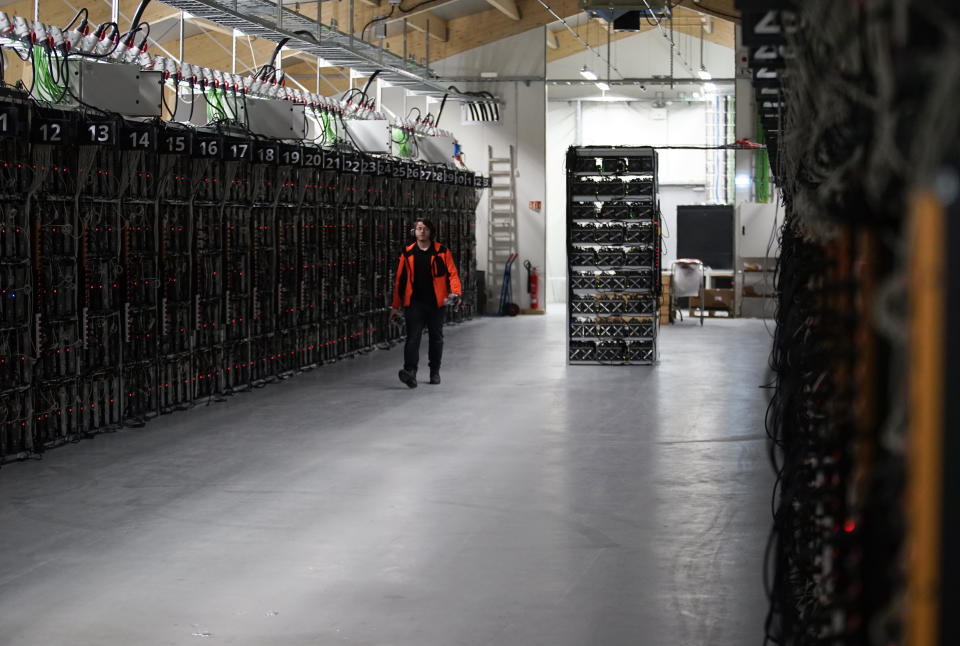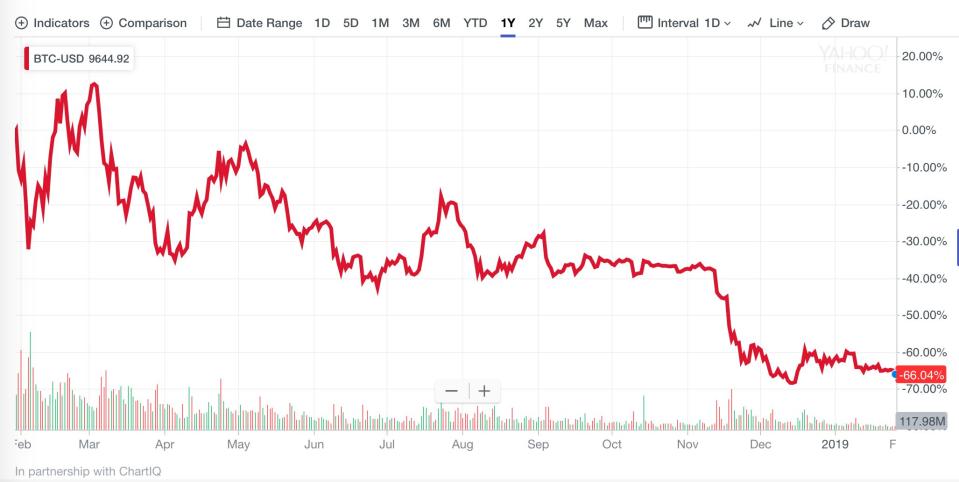CoinList cofounder: Crypto will be 'quiet' in 2019
The cryptocurrency story in 2018 was characterized mostly by doom and gloom.
The SEC cracked down on dozens of companies that held initial coin offerings (ICOs) without registering them as securities offerings—first behind closed doors, then out in the open with public announcements of enforcement actions. The same agency repeatedly delayed a decision on approving a bitcoin exchange-traded fund (ETF), which many in the industry see as pivotal to its maturity. The noise of big financial institutions announcing they were experimenting with blockchain died down along with the hype. Bitcoin ended the year down 74%, ether (ETH) fell 84%, and XRP fell 84%.
In the first month of 2019, the news hasn’t been much better. Bitcoin has started the new year down 12%. Cboe withdrew the Van Eck Associates proposal for a bitcoin ETF, and Jan Van Eck told CNBC crypto investors are moving to gold.
But maybe all the hype dying down could be better for crypto in the long run. That’s the reasoning of Andy Bromberg, cofounder and president of CoinList, which lists a small number of hand-picked, vetted ICOs.
“We had this first wave of massive hype around ICOs in 2017, early 2018, and then a little bit of a pullback,” Bromberg says. “And now in 2019, it feels like people are focused on building... I think the market is going to be quiet for a little bit, while people focus on actually creating things. It feels like a little bit of a Mesopotamia, ‘cradle of civilization’ moment, where everyone has the ingredients they need, needs to focus in and start to build out those empires, and create what the future is going to look like, and that’s what this year is going to be about.”

CoinList finds itself in a strange position at the outset of 2019. You might think that after the ICO market has deflated amid regulatory crackdowns and fines, a site that promoted ICOs would be in some trouble. But CoinList, since its inception, has only listed five ICOs: Filecoin, Blockstack, Props, Origin, and TrustToken, all offered only to accredited investors ($1 million in net worth or $200,000 in annual income), and none have launched their token yet.
“There are regulatory risks,” Bromberg says, “but people have been doing ICOs in what we would consider a compliant way since the beginning of them... Filecoin, Blockstack, some of these really big token sales, they did it treating it like a securities offering, and that’s the compliant way to treat these.”
Of course, if the future of compliant cryptocurrency offerings is to offer them only to those rich enough to afford the risk, doesn’t that somewhat sacrifice one of the original promises of cryptocurrency—to democratize finance?
“Certainly, I would love to see the most complete democratization possible, where everyone in the world can get access to these early-stage deals and invest and have the opportunity to generate profits there,” Bromberg responds. “That is sadly not the reality today. You have to follow the regulation that exists today. And I do think it’s important to note that a level of democratization has still happened here, even if we’re restricting to just accredited investors. Before token sales, if you were talking about early-stage equity investments in startups—which is what these are most analogous to—those were restricted to an incredibly small set of people: the top-tier venture firms and angels, usually in Silicon Valley or New York, and those people were the only people that could invest in those early-stage rounds... Now what we’ve seen is the token sale paradigm has created a social change where hundreds or thousands of people from around the world can invest in these offerings.”

As for the price of bitcoin, still falling right now at the end of January, Bromberg echoes the popular talking point among crypto entrepreneurs: price isn’t what matters most.
“Would I love for the price to be higher? Absolutely, it would create a lot more buzz,” Bromberg acknowledges. “But in lieu of that, I will take building, I will take results, I will take usage.”
—
Daniel Roberts covers bitcoin and blockchain at Yahoo Finance. Follow him on Twitter at @readDanwrite.
Read more:
Crypto pioneer Jed McCaleb: 'Most financial institutions are not going to use bitcoin'
Exclusive: SEC quietly widens its crackdown on ICOs
What crypto investment firms are telling clients during a bear market

